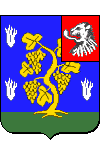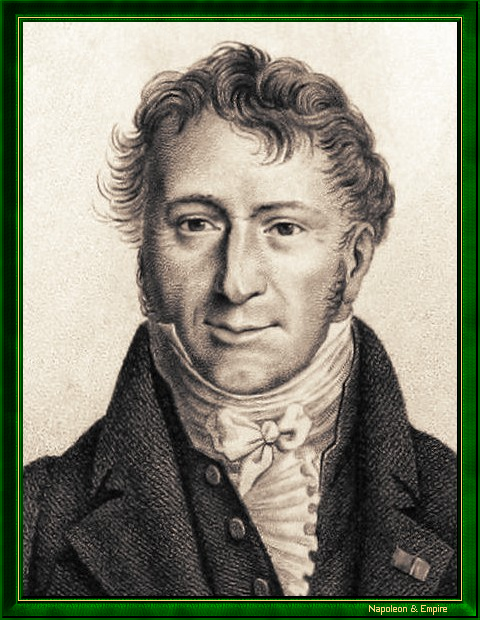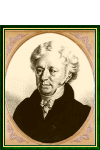Louis Pierre Édouard Bignon
Baron of the Empire
Pronunciation:

Louis Pierre Édouard Bignon was born in Guerbaville (now La Mailleraye-sur-Seine) on July 3, 1771, to a father who was a dyer in Rouen. After a good education, he enlisted in 1792 and became a general's secretary.
Noticed by Charles-Maurice de Talleyrand-Périgord, he began a career at the Ministry of Foreign Affairs in 1797, visiting the Helvetic Confederation, the Cisalpine Republic and Germany.
During the occupation of Prussia, from 1806 to 1808, he served as Imperial Commissioner to the local authorities. In 1809, he was appointed General Administrator of Austria, before being sent to Poland the following year as "Chargé d'Affaires". His work was rewarded with the title of baron of the Empire.
Three years later, the capitulation of Dresden saw him fall into the hands of the Allies. Soon freed by the Prince Karl Philipp zu Schwarzenberg, he returned to Paris in December 1813, bringing Napoleon the news of Joachim Murat's defection.
During the Hundred Days, the Emperor appointed him Under-Secretary of State for Foreign Affairs. After Waterloo, Louis Bignon became a full minister in the provisional government. In this capacity, he signed the convention of July 3, 1815 with the Allies, opening Paris to foreign forces. Shortly afterwards, Bignon left the government and temporarily withdrew from political life.
Re-elected as a deputy in 1817, Bignon established himself as a resolute opponent of the Restoration. The revolution of 1830 and the first weeks of Louis-Philippe's reign provided him with the opportunity for a second ministerial career, almost as brief as the first. Thereafter, while supporting the government, he frequently criticized its foreign policy, particularly with regard to England (too cautious) and Poland (too little support).
A member of the Académie des sciences morales et politiques since 1832, and Peer de France since 1837, Louis Pierre Édouard Bignon died in Paris on January 6, 1841. He was buried in Mesnil-Verclives, Eure, a little village where he owned a castle .
"Baron Louis Pierre Edouard Bignon". 19th century engraving.

Bignon left an abundant and useful historical and political body of work, drawn from the best sources. The Emperor, who had commissioned him on his return from Elba to analyze Talleyrand's papers and publish excerpts from them that were reprehensible, included him in his will to write a History of France under Napoleon. Which he did.
Other portraits
